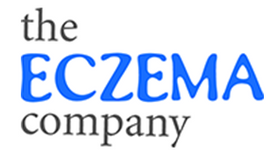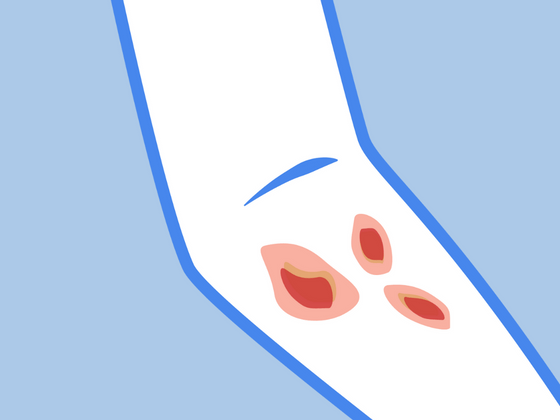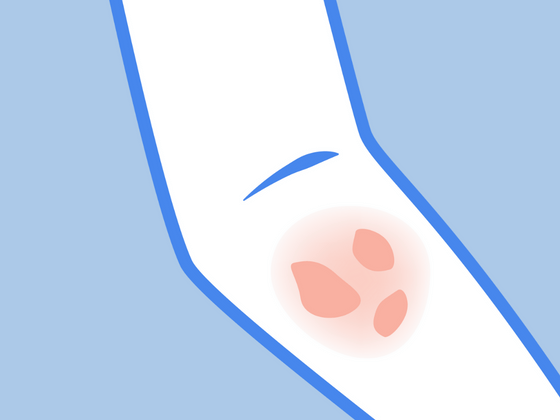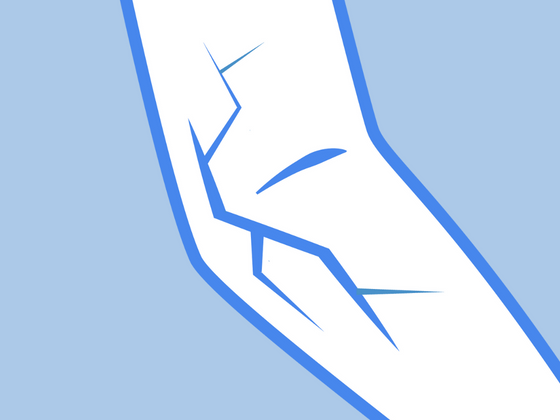Your skin is exposed to thousands of substances each day, most of which (thankfully) don’t cause a negative reaction. In some cases, however, certain substances may trigger a chemical change in the immune system, even if these substances aren’t generally harmful to the body.
These chemical changes are the body’s way of protecting itself from disease. Two common types of allergic reactions are eczema (atopic dermatitis) and hives (urticaria or angioedema). Because they appear quite similar to each other, confusing eczema with hives is a common mistake.
In this post, we’ll discuss the difference between eczema vs. hives, and give you some natural treatment options to help you find relief.
If you are suffering from eczema or hives, please bear in mind that we are in no way medical professionals. If you are experiencing severe symptoms or infections, speak to a medical professional as soon as possible.
What is Eczema?
Eczema is a chronic skin condition, usually beginning in infancy or early childhood, that is triggered by a number of things, including dust mites, sweating, contact with irritants such as latex or soaps, and even food allergies.
It’s characterized by dry, scaly skin, intense itching, and patches of red rashes. Though there are several types of dermatitis, the most common type of eczema is known as atopic dermatitis.
What are Hives?
Hives - red, itchy, raised areas of the skin - are formed when the body releases a chemical called histamine in response to an allergic or hypersensitive reaction.
Hives can travel, disappear and reappear within short periods of time, and range in size. They can also appear anywhere on the body, often appearing in clusters of swollen welts with a red center that turns white when pressed.
While they can disappear in as quickly as one or two hours, some people suffer from chronic hives which can last for several weeks, months, or even years. 20% of the population has suffered from hives at least once in their lives.
Eczema vs Hives
Eczema and hives are both itchy allergic reactions where symptoms occur on or just under the skin. Because both cause irritated, itchy rashes, it can be difficult to distinguish between the two. As with chronic hives, the exact cause of eczema is unknown, but it's thought to be linked with dry, irritated skin and an overactive immune system.
In the case of contact dermatitis (another form of eczema), the difference is that hives cause an itchy reaction whereas most people who experience contact dermatitis feel more of a stinging or burning sensation.
Can Eczema cause Hives?
It’s true that eczema and hives can go hand-in-hand ― but can eczema cause hives? Short answer - no . Both conditions simply tend to flare up when exposed to things that trigger an allergic reaction. This includes some of the substances listed above, as well as mold and animal dander.
Common types of food associated with hives and eczema include peanuts, tree nuts, milk, eggs, and shellfish (crab, shrimp, oysters).
To learn more about how food affects your skin, check out our post: How To Start an Elimination Diet for Eczema (Find your Food Triggers!).
Viral or bacterial infections can also trigger acute hives, as well as drug or insect sting reactions and physical factors such as temperature and exposure to sunlight.
Natural Treatment Options
To avoid an eczema or hive flare-up, the key is to avoid triggers. This will help control itching which, in turn, will help reduce symptoms and allow you to better manage your skin.
Firstly, we recommend taking shorter showers or baths, using slightly warm water instead of hot. Be sure to use natural soaps only, instead of soaps that contain harsh chemicals as these have a tendency to remove moisture from the skin or provoke a bad reaction.
We love this healing soap by Emily Skin Soothers because it won't strip the skin of its natural, protective oils. Made with a mixture of Chinese herbs, it’s great for anyone with dry, sensitive skin - even babies! Another option for allergy prone skin is this Grass Fed Tallow Soap. Made the old fashioned way with lye, water and grass fed tallow, it’s highly moisturizing and nourishing.
You should also avoid wearing rough or tight clothing, and fabrics such as latex, nylon, or polyester. We love Remedywear™ because they offer a variety of soothing hypoallergenic clothing made with 100% organic cotton, organic bamboo and more. Composed of TENCEL and embedded with anti-inflammatory zinc, they make the perfect allergy-free clothing. Some of our favourite Remedywear™clothing includes:
To learn more about the importance of wearing the right clothing, check out Why Eczema Clothes Are An Important Part of Eczema Therapy..
Finally, for cooling relief from itchy skin, try this Organic Aloe Vera Spray. It can be sprayed anywhere on the body - including the face - to find relief for itchy skin. We also love this Organic Calendula Oil because it’s fast absorbing and gives your skin an extra boost of moisture. It’s great for babies and adults alike.
References:
https://www.everydayhealth.com/hs/chronic-hives/hives-or-something-else/
https://www.allergyandasthmawellness.com/service/hives-eczema-and-other-rashes/
------------------

Bio: Laura is a contributor and content developer for The Eczema Company. She is in no way a medical professional. Her comments, suggestions, and reflections are not intended to replace any medical advice. Always seek the help of a medical professional before undertaking any diet or lifestyle changes.








